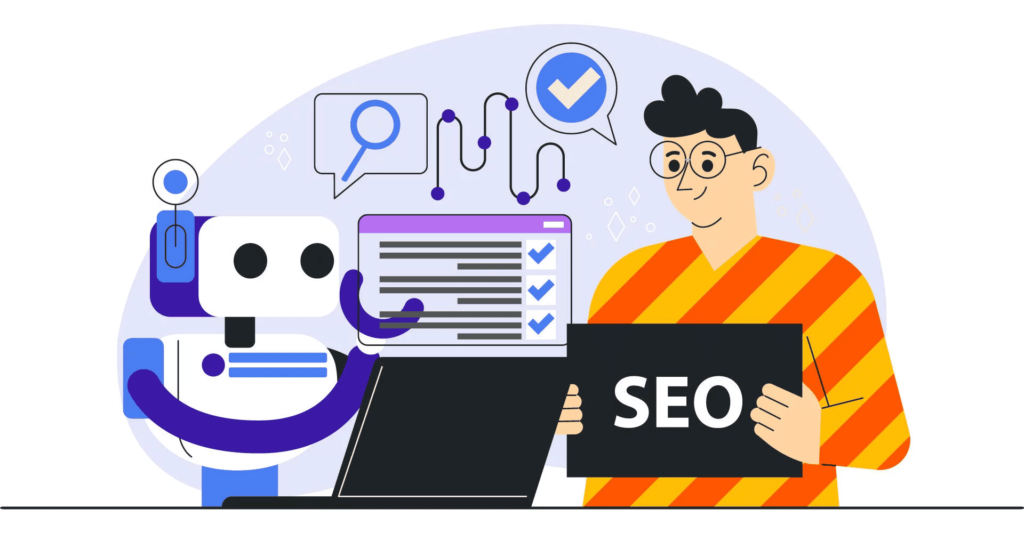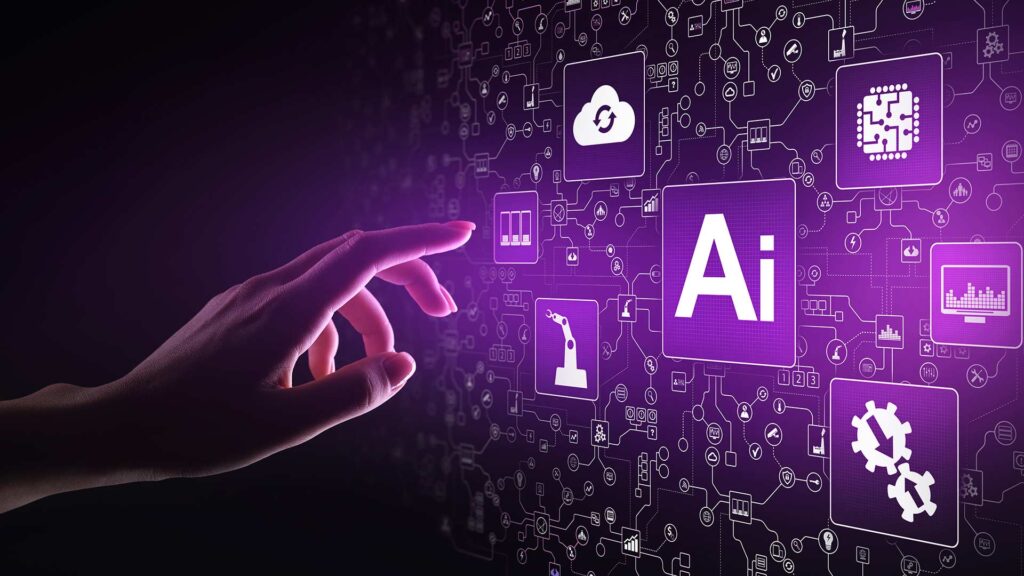It is still unclear how generative content from artificial intelligence (AI) will affect search engine optimization (SEO), but it continues to pour onto the web. Much remains uncertain, but we can agree on one thing: these tools make our work more effective, automate formerly labor-intensive processes, and boost our results. Your advertising firm may not be ready to embrace AI yet, but take time to investigate its role in the future of marketing.
The evolution of AI tools and SEO is ongoing
Everyone wonders what Google will do about the deluge of AI-generated material, and the truth is the search engine is having a hard time keeping pace. AI’s rapid development is mind-boggling. Every day, artificial intelligence systems gain more and more sophistication. These algorithms will be significantly more advanced in a month, let alone a year.
Even tech giants like Google seem behind the curve. Since ChatGPT’s release, Google has come out with conflicting accounts of whether or not it plans to penalize content generated by artificial intelligence.
Competition between Google and Microsoft’s AI-powered search engines is likely to cause upheaval in the near future, so prepare yourself for upcoming shifts in search algorithms. As you watch, experiment, and wait, best practice demands you keep up with evolving policies. Stay up-to-date on ChatGPT’s algorithmic watermarking, and keep an eye on content guidelines from search engines like Google.
Advertising firms can utilize AI without incurring SEO penalties

To stay competitive, channel your creative juices into harnessing the power of AI in your advertising firm’s marketing content. While generating final drafts of well-written search-optimized content is currently impossible, AI still holds vast potential. The task at hand is effectively employing artificial intelligence into daily operations and ending up with high-quality, original content.
Today, marketing teams use AI systems in many ways. They speed up their pre-writing process, reduce their time spent on repetitive tasks, and increase their productivity. I regularly see marketing agencies use AI tools in their content briefs, outlines, meta descriptions, keyword lists, on-site material, and early drafts.
It’s high time we demystified the process of generating AI marketing content with AI systems. While the tools are extremely impressive, they are not magic. In fact, high-quality human input is crucial to the success of any artificial intelligence system. To maximize results, your advertising firm will need instruction on the input that makes these new tools most productive.
The first step in benefiting from AI lies in familiarizing yourself with its constraints. At the moment, ChatGPT is unable to produce marketing content of any substance when it comes to timely or trending topics. This is simply because the AI platform lacks a sufficient foundation to draw from. As of now, its database only reaches up to 2021.
Strategies for leveraging AI for sustained SEO success
The key to reaping the benefits of AI-generated content is in uniting today’s technical advances with our own human skills and knowledge. Humans in marketing and IT departments are worried that AI will take their jobs. As I see it, the old adage applies: “If you can’t beat it, join it.” We need to stop seeing AI systems as our competitors.
There is no magic in a tool — it is just a tool. As with all new technologies, we need to be knowledgeable about how we use them and avoid becoming completely reliant.

With this in mind, look at generative AI as your new assistant and find ways to make this software useful. Comb their drafts with a critical eye, and remember that humanity is still the key ingredient to authenticity.
As of today, AI is far from replacing the nuance and originality of a human marketing team. To optimize AI-generated content for search engines, human writers and editors must correct bias, verify facts, and fine-tune brand voice.
When employing content generated by an AI system, you absolutely must verify the claims it makes. Every AI-generated draft is likely to contain many false facts stated with an air of full authority. This is worrisome in general, but especially when the subject matter is an area such as medical advice. Remember, your agency and the brands you represent are responsible for the material they publish. This is true regardless of whether an AI system generated the content.
Another area where AI-generated material still requires the polish of human writing teams is branding. You have worked hard to help your clients develop a unique brand voice, and AI cannot replicate it. Switching abruptly to AI-generated content will interfere with any brand’s consistency and authority.
Should we employ AI or not?

The bottom line is that we all need to keep current with how artificial intelligence is changing the marketing landscape. That being said, several factors may determine how extensively your marketing agency chooses to take advantage of the new technology during these early days. If your company is well-known, has a high domain authority, consistently produces high-quality content, and stays one step ahead of the competition, you may prefer to wait and see what Google will do next.
However, if your company is looking to gain an edge over the competition, leveraging AI can be a game changer. In the current landscape, you can increase output and productivity without fear of major consequences.
Whichever approach you adopt, don’t lose sight of tried-and-true methods of search engine optimization. High-traffic keywords, original content, ease of use, and local search engine optimization remain the four pillars of content with high search engine rankings. Whether or not you use AI at some point in the writing process, your marketing agency’s human writing team needs to ensure it remains high quality, accurate, helpful, original, and client-centered.




